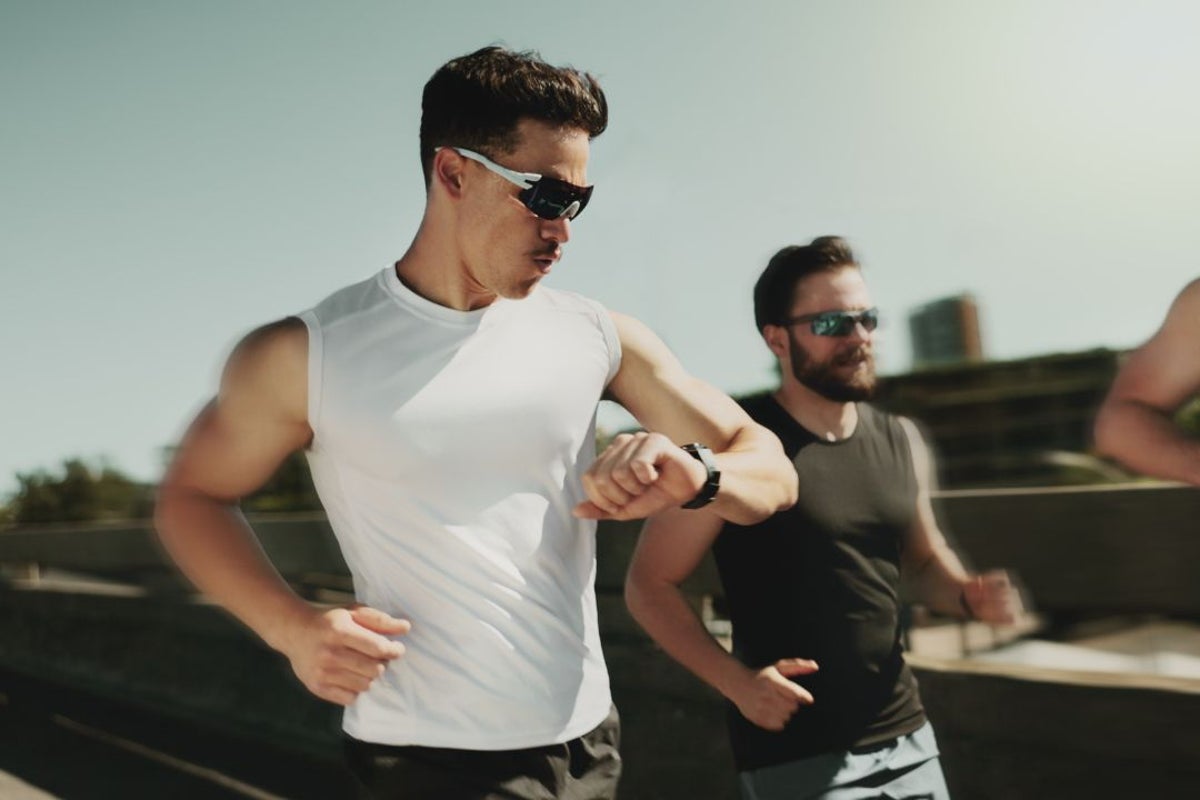On a beach in Reykjavik, what looks like the lovechild of a seal and a woodsman wades out of the bitterly cold waves. This wetsuit-clad man is Ross Edgley, and he has just become the first man to swim around the Icelandic coast.
Back on UK soil, every other person seems to be running, training for or contemplating some sort of endurance feat – be that a marathon, triathlon or a Hyrox race, where participants alternate between running and different workout stations. These events are a world away from Edgley’s accomplishments, yet the rationale for taking part remains the same; challenge, accomplishment and adventure.
A look back through history suggests these desires have always occupied the human psyche, for some at least – just look at the likes of Captain Webb, Ernest Shackleton and Scott of the Antarctic. But will an organised 26.2 miles really sate your need for novel experiences, or do you need to circumnavigate an island nation in your Speedos to truly satisfy the explorer inside?
To find out, I asked the experts: Edgley himself, Ultra-Trail du Mont-Blanc winner Tom Evans, everyone’s favourite endurance runner Russ Cook, and Joshua Davidson, a lecturer in clinical exercise science at the University of Derby.
Why is everyone running marathons?
As a Hyrox veteran who is gearing up to train for a marathon, I am firmly in the firing line for this feature.
Why do I sign up to these events? To prove to myself that I can complete them, above anything else. There’s also an element of competitiveness, social validation and an immense sense of satisfaction when weeks of training come together to achieve an end goal.
I run with the knowledge that what I’m doing isn’t revolutionary – or is it? Exercise is “an artificial behaviour”, according to Professor Emmanuel Stamatakis of the University of Sydney. Humans have introduced exercising for health because, for the sake of convenience and speed, “our civilisation has removed the need to be physically active, and our bodies pay the price”. Maybe my desire to move is an act of sweaty rebellion?
I could also be motivated by survival, according to lecturer Davidson, who specialises in the psychology of exercise. There are no sabre-toothed tigers on my heels, granted, but evolutionarily speaking, exploration would have been desirable for helping humans uncover new resources and opportunities.
“Engaging in novel or physically challenging activities can also stimulate the release of dopamine and endorphins, which create feelings of pleasure and satisfaction,” Davidson adds, although he says this “sensation seeking” trait varies between individuals. In any given playground, there will likely be one child sitting happily in the sandpit while another summits a climbing frame.
“Those high in this trait are more likely to pursue adventurous experiences, particularly those that involve risk, uncertainty or high arousal – this is why the trait is associated with addiction,” he explains. “Adventure sports provide a structured environment to satisfy these needs, combining physical challenge and personal mastery in a way that is both stimulating and fulfilling.”
How to have an adventure – according to adventurers
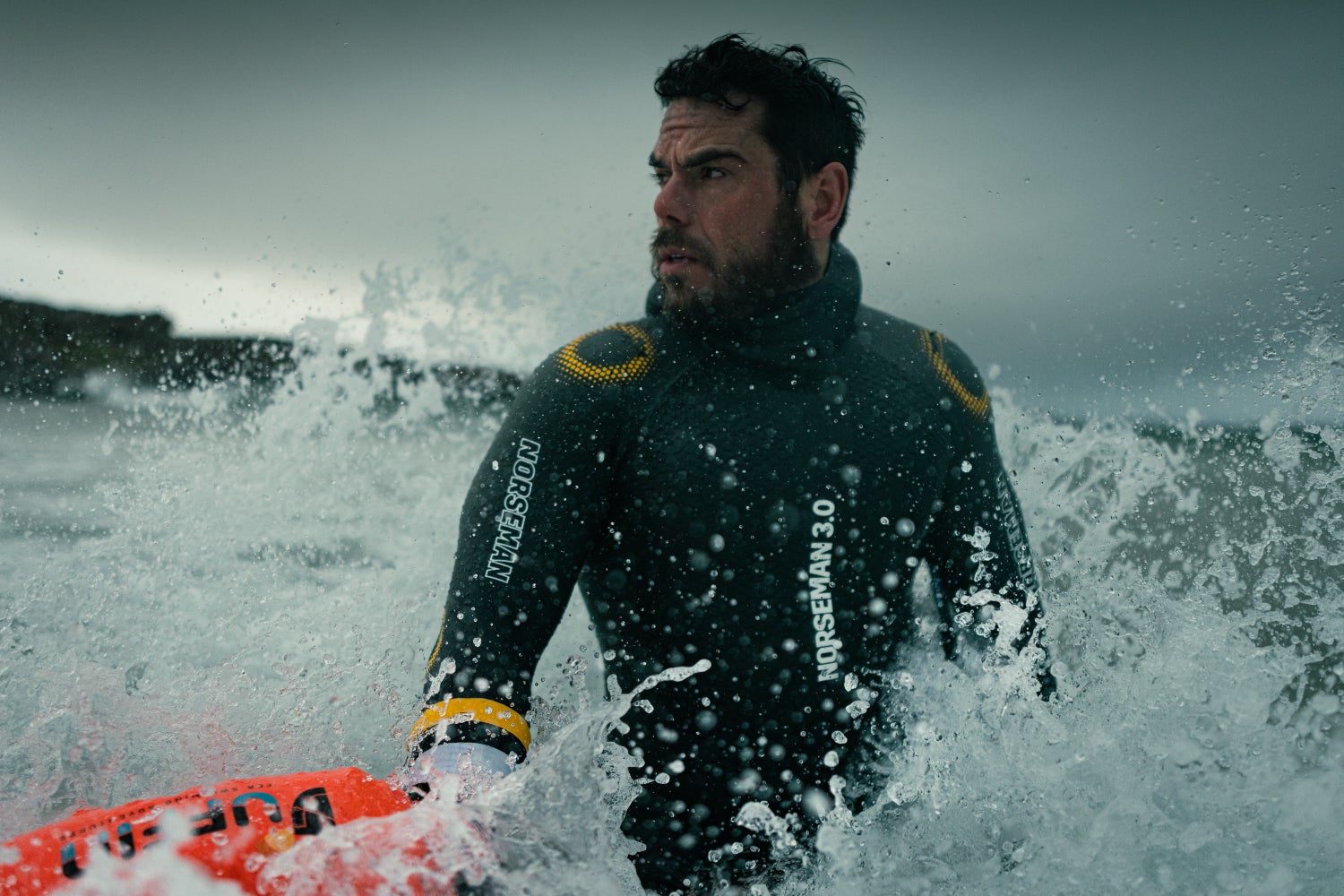
open image in gallery
Ross Edgley is the first man to swim around Great Britain, the first man to swim around Iceland and the first man to complete a triathlon with a 45kg tree attached to him – there are few better people to speak to about adventure
Ross Edgley: Endurance swimmer and the world’s most smiley sadist
I’ve never interviewed someone who has just spent six hours face-down in a Scottish loch – Ross Edgley helps me break that particular duck. He sits on a sofa in a loose-fitting vest, sporting a seafaring beard and a gigawatt grin which I soon learn is a semi-permanent feature.
This sunny disposition has helped him conquer all manner of challenges; swimming around Great Britain; rope-climbing the equivalent height of Everest; completing a triathlon with a 45kg tree strapped to him – a “tree-athlon”, he points out, to raise awareness for environmental charities.
If there is one person to question on adventure, it’s Edgley, so I put it to him: “How can average Joes like me have an adventure, and are conventional events enough?
“I love this question,” the Myprotein athlete tells me with predictable vigour. “I would encourage everybody to think outside the realms of conventional sport.
“An organised marathon is amazing, but I personally love the people who just go on a mad adventure; you can kayak or cycle or run, just so long as you find something that resonates with you.”
This practice of self-discipline and self-discovery has always been ingrained in humans, Edgley says. As evidence, he points to the Yamabushi monks in Japan who undertake an Okugake, or 80km pilgrimage route. The concept of the walkabout – a rite of passage in Australian Aboriginal culture where adolescents undertake a journey to help them transform into adults – is another example.
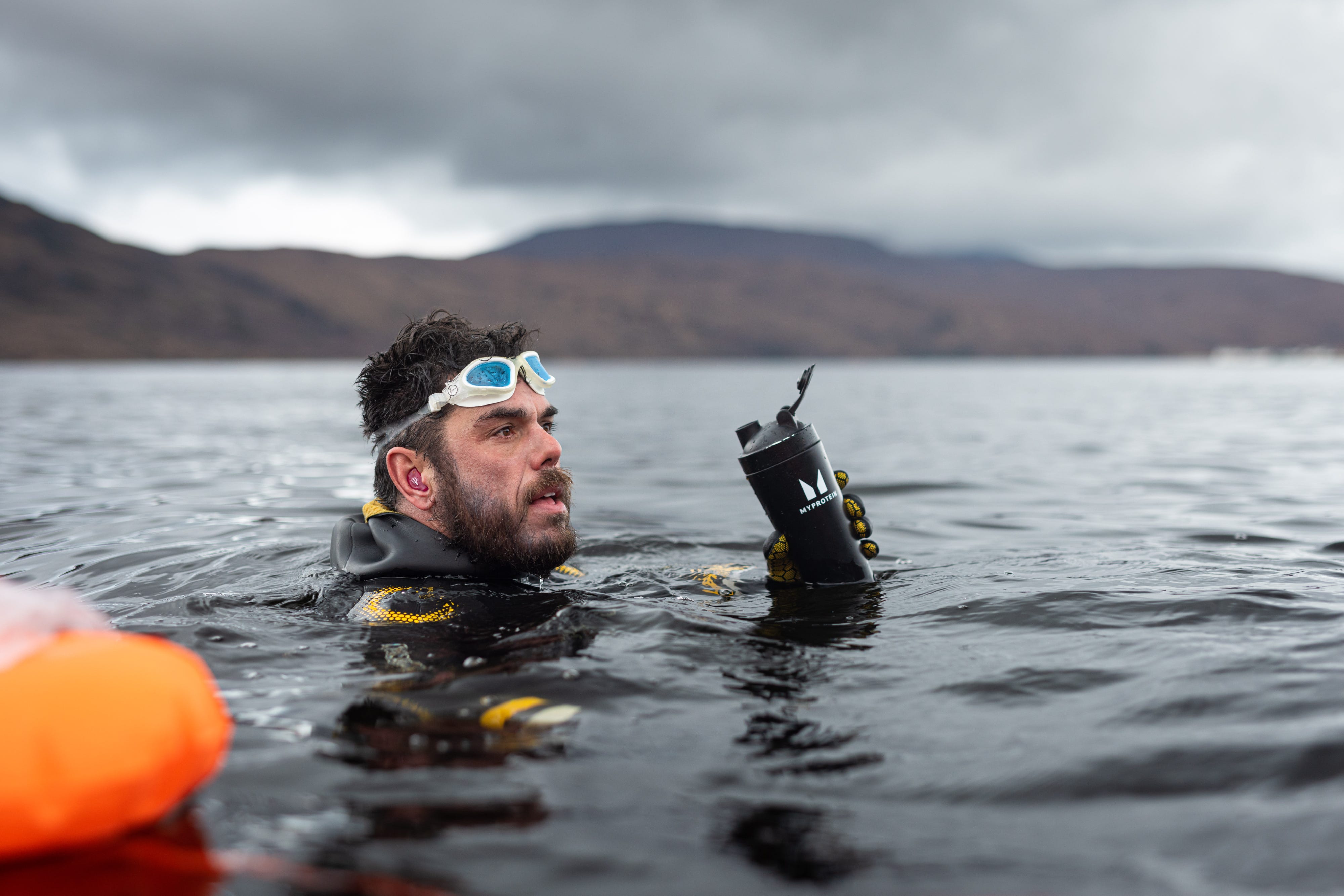
open image in gallery
Ross Edgley trained in Scottish lochs to prepare for his ‘Great Icelandic Swim’ (James Appleton/BMW)
“We’ve always done something, in every society and every culture, but I think we’ve partly forgotten about that [in recent decades],” Edgley says.
“So I would love it if somebody turned around and told me: ‘My great granddad was born in Glasgow and I live in Birmingham, so I’m going to bike all the way there on his birthday as a pilgrimage to remember him, and I’m also going to do it to raise money for a condition that affected him. That’s so good on so many levels.”
The end goal? In Edgley’s words: “Ultimately, all athletes and adventurers just want some cool stories [for sharing with people] down the pub”.
“I don’t want to belittle any achievement; if someone tells me they’ve just run a marathon, that’s amazing,” he continues. “But when I speak to that guy who has just cycled to Glasgow in honour of his grandad – that’s an adventure.
“It’s even something me and my friends do. I have a friend whose house has an outdoor gym with a 50m sled track, overlooking gorgeous fields. One of my favourite workouts, which isn’t rooted in sport science, but instead a kind of spiritual self-discipline, is to load up 200kg on a sled, put my sports watch on top of it, then push it until the watch says 10km or the sun goes down.
“I think adventure is about creating your own events and having them resonate with you. When people ask, ‘Why are you doing that?’, you have a specific reason.”
The other prerequisite of an adventure is having the motivation to see it through, Edgley adds.
“Your reasons to continue need to be bigger than your reasons to stop,” he explains. “If you have a really strong reason, you create your own adventure, and then you have an epic story. That’s why I love speaking to people who come up with the most random stuff.”
Read more: I tried the Royal Navy’s new fitness test – and it wasn’t what I expected
Tom Evans: Ultra-Trail du Mont-Blanc champion 2025

open image in gallery
In 2016, Tom Evans had never run more than 10km. After a drunken bet with friends, he soon became one of the world’s best ultra runners (Red Bull / Tom Evans)
Tom Evans has plenty of good stories for the pub – this becomes abundantly clear when speaking to him. His recent years-in-the-making victory at Ultra-Trail du Mont-Blanc – a 174km race across the Alps, which enjoys mythic status among endurance athletes – now represents the cherry on his raconteurial cake.
His endurance running journey also started in a pub, when he drunkenly bet friends he could better their time in the 251km Sahara Desert-based Marathon Des Sables. At the time, the British Army captain had never run more than 10km, yet less than a year down the line he was good to his word, becoming the first non-sub Saharan male to podium at the event.
Now a professional athlete and world-leading ultra runner, Evans argues the case for trail races being a greater adventure than traditional road-based marathons.
“If you run a marathon, someone will ask, ‘What time did you run?’,” the Red Bull athlete says. “If you do a trail race, people ask, ‘How was it?’.
Read more: I tried Reacher star Alan Ritchson’s three-move workout for bigger arms and shoulders

open image in gallery
Tom Evans during the Wings for Life World Run Flagship Run in Vienna, Austria, which he went on to win (Red Bull / Tom Evans)
“When you run on the road, people aren’t interested in whether you enjoyed it – they want to know what time you ran. But I couldn’t tell you my times from my best trail race performances.
“The routes are different between events, the weather changes and you race the conditions; it’s a race and a journey rather than purely running for a time.”
It’s an undeniably time-consuming hobby, with Evans spending hours each week gambolling around the Lake District, Peak District and Eryri. But this exploratory approach adds enjoyment while removing stress from the equation, he says.
“You can go at your own pace if it gets tough – I walk in most of my races. There’s nothing wrong with walking. I love a good walk. But I feel in a marathon people really don’t want to walk, and it’s seen as a negative thing.”
Russ Cook: Endurance runner and ‘Hardest Geezer’
open image in gallery
Russ Cook, aka the ‘hardest Geezer’, says you don’t need to run the length of Africa to have an adventure (Ben Stevens/PinPep)
Russ Cook is uniquely qualified to answer any question about adventure. He FaceTimes me from his car between training sessions in the Sahara Desert, where he was preparing to run New Zealand top to tail. This, of course, comes after he became the first man to run the length of Africa.
His relationship with running started with a half-marathon in Brighton, swiftly followed by a full marathon in the same city. These proved to be defining interventions in a life previously dominated by quick dopamine wins such as gambling and partying.
“I was trying to cut corners to meaningful, exciting or fun things – anything that made me feel alive,” the Huel ambassador tells me. “When I completed a marathon, it was a huge moment for me because just six or eight weeks before a marathon had seemed like something only other people did. Being able to do it showed me a lot about myself, and how much more capable I was than I realised.”
He trained, he conquered, then he applied this approach to other areas of his life, sparking an immediate uptick in his fortunes.
“I saved up a bit more money, started being a bit more organised, structured and disciplined, then I came up with a plan,” Cook says. “I bought the cheapest one-way tickets I could find and ended up going around the world.”
In Kenya, he bumped into an Italian cyclist who inspired him to keep the adventure going.
Read more: A cardiac nurse says these five daily behaviours can reduce your risk of heart disease
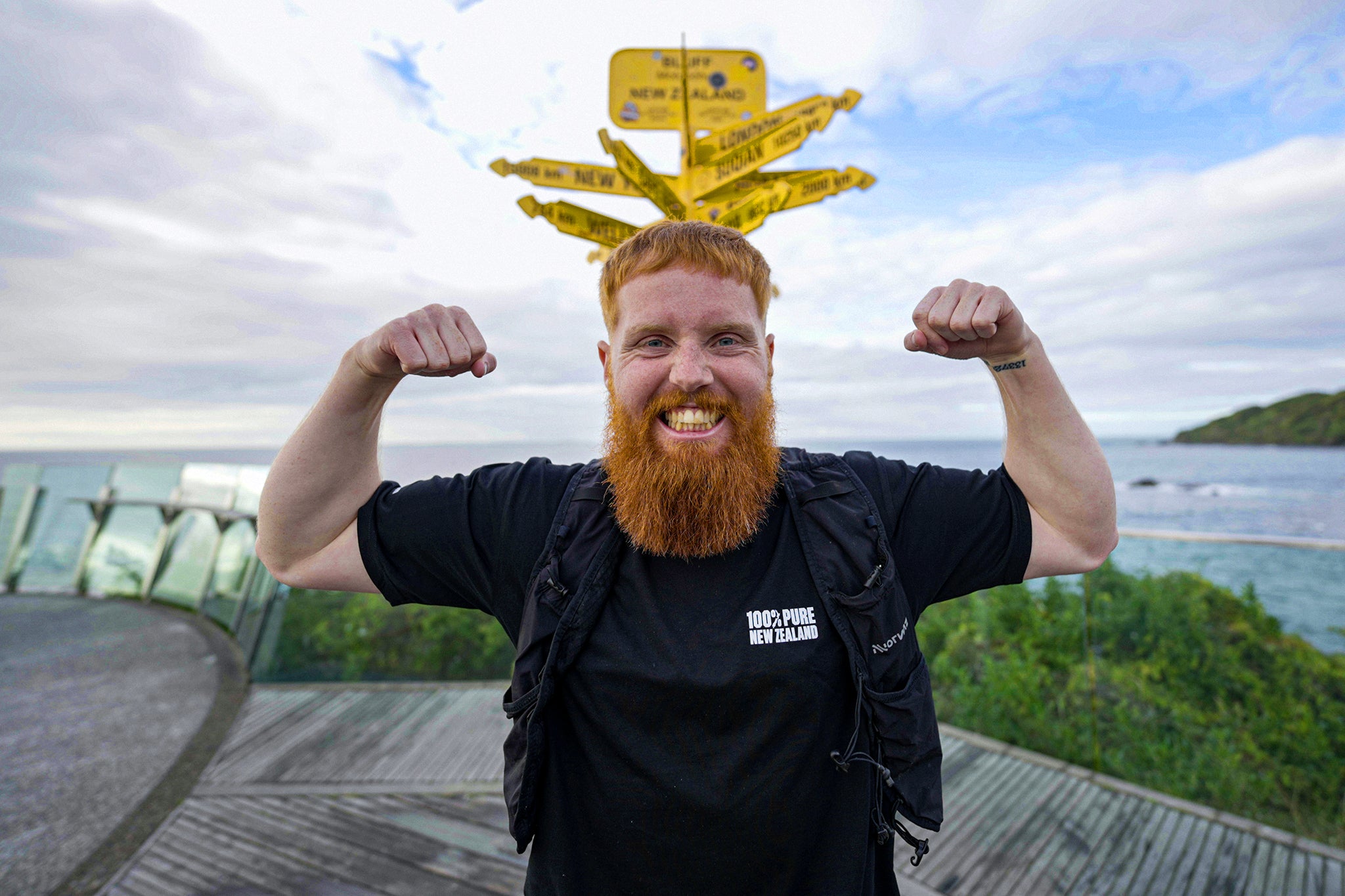
open image in gallery
Russ Cook during his most recent New Zealand running challenge (Toby Jones/PA Wire)
“Chatting to him really changed my perspective on how I could live life if I wanted to,” says Cook. “I don’t have to subscribe to everything I’ve been taught, I can play a different game, and that’s when I ran home from Asia to London, which started the whole idea of running Africa.”
For most of us, running across a continent isn’t feasible. For many, running in any capacity is a challenge. But Cook’s suggestions for adventure are surprisingly accessible.
“I’m all for people finding whatever adventure is for them and taking that on – I don’t necessarily want to shove running Africa down everyone’s throats,” he laughs.
“Adventure means so many different things to different people. In the traditional sense, we talk about climbing mountains, travelling, going across countries and all of those types of things. But for me, there are so many adventures to be had in life.
“Getting married is an adventure, creating a business is an adventure – there are so many different adventures to be had.”
Read more: I just ran my first Hyrox race – here are six things I wish I’d known beforehand
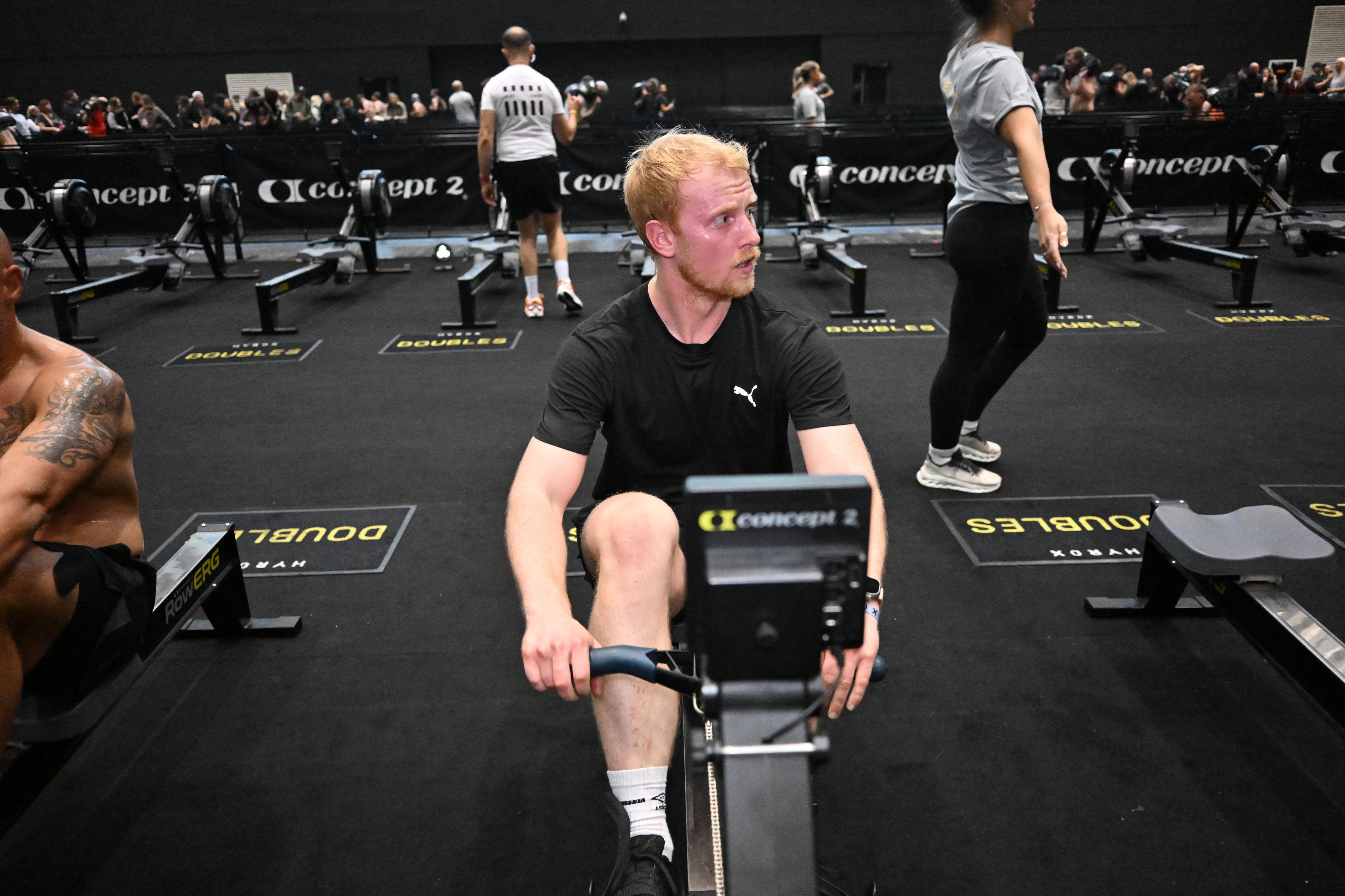
open image in gallery
I’ve completed two Hyrox races, but can I chalk them up as adventures? (Sportograf / Hyrox)
Do marathons and Hyrox races count as adventures?
Adventure means different things to different people, but the insights above suggest the common denominators remain fairly constant; challenge, novelty, satisfaction and individuality. Perhaps unexpectedly, Edgley takes us to the work of Aristotle to explain this.
Aristotle used the term “eudaemonia” to describe a state of living with meaning, virtue and purpose. Eudaemonia is achievement, or “happiness with fulfilment” in Edgley’s words, and this is the end result of a good adventure. Marathons and Hyrox races can meet this criteria in many cases.
“They offer a well-calibrated challenge that is physically and psychologically engaging,” says Davidson. “As a result, participants typically experience a strong sense of achievement and a range of positive emotional states, especially in the immediate aftermath.
Read more: Why going sober was one of the best things I’ve ever done

open image in gallery
Thousands took part in the 2025 London Marathon (PA Wire)
“The social atmosphere and spectacle of such events also help individuals form a sense of identity and belonging, enhancing motivation and meaning.”
However the true nature of an adventure comes down to what it means to you.
“What feels transformative to one person might feel mundane or overwhelming to another,” Davidson continues. “For some, hiking a mountain solo, learning to surf or completing their first 10-minute continuous jog might be just as significant, and just as physiologically and emotionally engaging, as a marathon is for someone else.
“The key is not the format, but the fit between the person and the experience. The most rewarding challenges are those that; are just beyond your current ability; have personal meaning; engage you physically and emotionally; allow space for reflection or social connection. So, while marathons and Hyrox races can provide this for many people, they are not the only way.”
I found this to be true. When I first ran a Hyrox race, I turned up underslept, underfuelled and altogether underprepared, falling well short of my target time. I vowed to return under different circumstances, and six months later found myself on the start line again – this time with a hearty breakfast and a few months of specific training under my belt.
Approaching the halfway mark, I felt great, tearing chunks off my prior PB with each passing lap. As the race progressed, it became clear I was going to hit my target time, and an irrepressible grin spread across my chops – this was a small achievement in the grand scheme of things, and I was far from the fastest athlete on the day, but the sensation sure felt like eudaemonia to me.
For this reason, I’m happy to categorise my Hyrox race as an adventure, and I’m sure most feel the same way about their marathon experiences. Now for my next adventure, as per Edgley’s guidance, it’s time to interrogate my gran on her Scottish roots.

